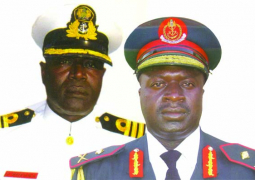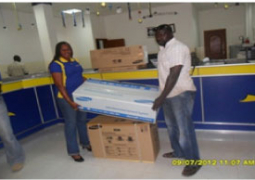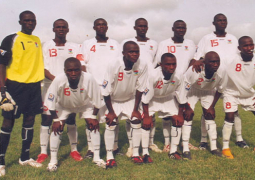
The project has registered significant successes since it began two years ago. Women farmers noted that the Reflective Action Participatory Vulnerability Analysis (PVA) exercise afforded them a chance to be empowered through participation and making decisions at community level on development issues. “We now have a better understanding of our context and are better prepared to respond to hazards should they occur”, said Kaddy Jammeh from Toubakolong village in The Gambia. Farmers identified availability of quality seeds, food, improved planting materials, enhancement of household income, improvements in child welfare and education as some of the successes of the project. They however noted that sharing of local knowledge, limited resources and inadequate awareness of climate change issues are some of the challenges they faced under the project.
The opening ceremony, which was chaired by the Head of Programmes for ActionAid Senegal, Aissata Dia, was made by the Governor of Kaolack who said: “I am very concerned about the damages that climate change has brought about in the two countries. I would like to commend ActionAid for building the resilience of farmers and empowering women in The Gambia and Senegal”. The governor called for increased partnerships between public, private and civil society which he said will ensure more successes for the project.
The Country Director of ActionAid Senegal Dellaphine B. Rauch Houekpon and Omar Badjie Executive Director of ActionAid International The Gambia emphasized the importance of farming in both countries and how it is being affected by climate change. “The Agro Ecology and Resilience Project helped to look at options to rain fed agriculture in The Gambia and Senegal where the rainy season lasts for only three to four months”, they stated. They went on to disclose that the next phase of the project has been approved by the Margaret A Cargill Foundation and it is expected that the gains made in the first phase will be consolidated, enhanced and replicated in other areas.
“Agro-ecology empowers communities to engage in sustainable agricultural practices through making use of farming systems that maximize productivity for the farmers while preserving them for future generations”, says Garikai Magaya, the Manager of the Project for Senegal and The Gambia
Woman smallholder farmer Awa Jallow from Senegal speaking on behalf of the communities of Kedougou, Niodior and Tamba said: “this project has made us become resilient. For us, with or without rain we can survive”. Another woman farmer- Fatou Ndow from Pakau Njogu in The Gambia stated: “We have benefitted greatly from this project. It took us from difficult circumstances to the progress we are experiencing today”. Both farmers commended ActionAid for the support and prayed for its success.
The participants visited the community of Baout in the district of Djirna where women farmers living on the island and experiencing low rainfall and rising sea levels, have been forced to stop farming due to salt intrusion in their rice fields. The women are now growing vegetables on tables. “Because of the project, we now understand how climate change was causing our sorrows and how to cope with them. We now have vegetables year-round and hopes for the future,” said Amie Diouf the President of the Women’s Vegetable Garden Project.
The meeting ended with an interface with service providers on meteorology which took the form of a question and answer session. The second phase of the project is expected to start in June this year and will last for three years.




